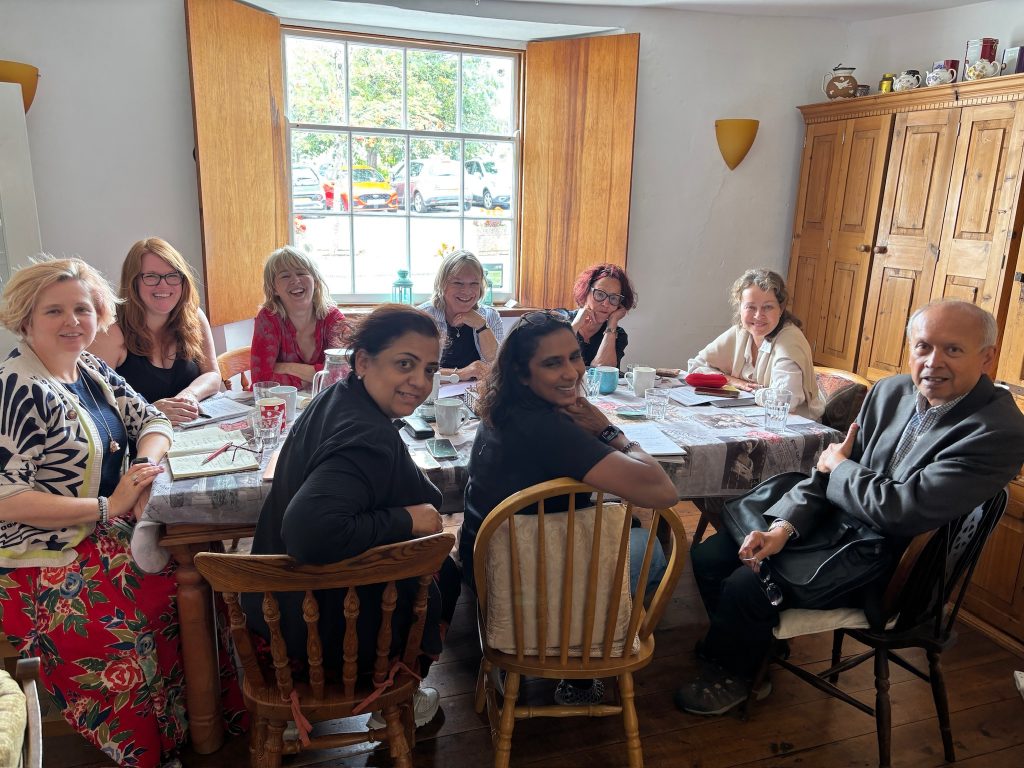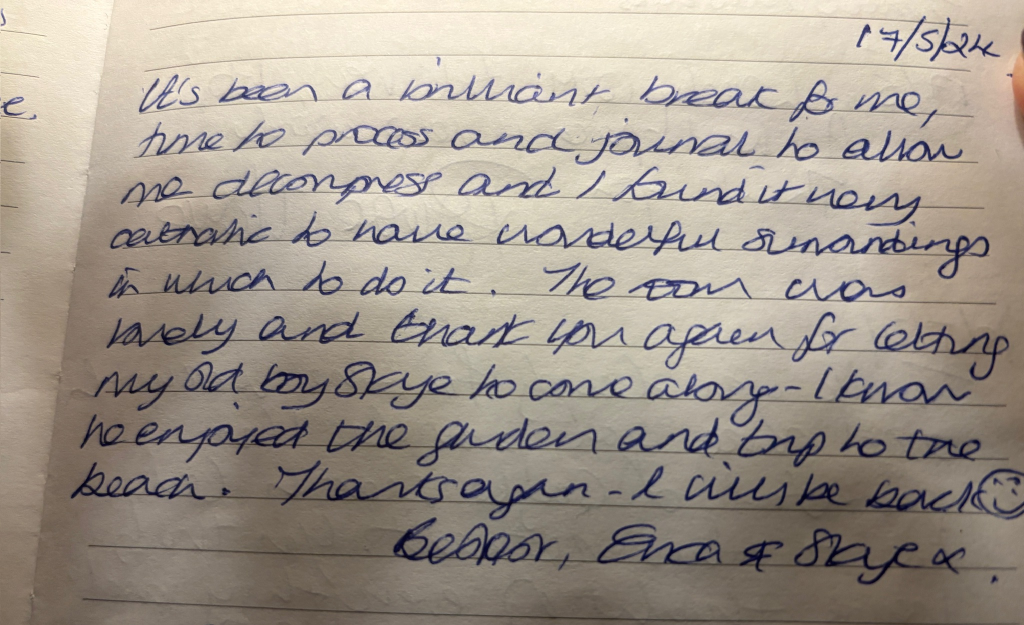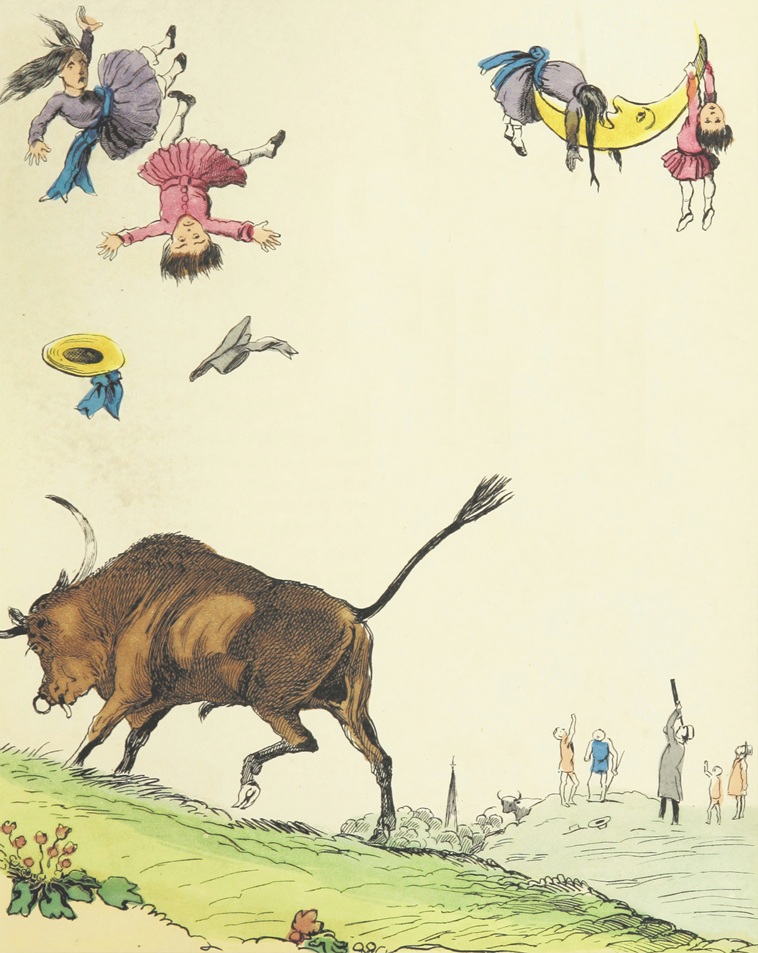
Building a network and broadening a normally solitary activity into something a bit more social, by going on a writing retreat, can sometimes be the breakthrough many of our authors need. A supportive environment and reassurance is in the months that follow, especially when rejections start to come through.
Subsequent conversations with newfound buddies are always keeping our guests invigorated. A recent conversation about TS Eliot rejecting George Orwell’s Animal Farm when Eliot worked at Faber and Faber is one of them – thanks to Jane Smillie for this precious picture of the rejection letter and more information on a little separate blog I’ve posted on my website, go here to read it all, it’s fascinating what they had to say back then.


Jane was here for our memoirs-in-essays workshop, which has now sold out two years running. The next date with fabulous tutor Margarita Gokun Silver is the 4th of August 2026, more info here – do feel free to book early!
And what are those rejections to famous authors? See below for a timeline and some quirky facts about how some of them got their breakthroughs! Very inspirational.
Plus
LAST MINUTE GETAWAY,
Mon 1st September, 4 nts fr £129
A fabulous Just Write week next week, arrive Monday 1st September, leave Friday – leave your daily routine behind: own cosy room, all catering taken care of, like-minded company to build a network of your own, and to fire off ideas during after-supper chats. And four whole nights of peace and sanctity. From £129pn. WhatsApp Debbie now on (07949) 052208 – special deal for those that have come regularly. (November dates also available.)
Also, learn your craft with one of the most prolific tutors, at Janet Gover’s Novel-writing workshop in October.
And scriptwriting in March! Our calendar is here.
Meanwhile, what about those rejections….
Even some of the most famous authors in history have overcome adversity in one way or another. Here’s a timeline of inspirational breakthroughs. Enjoy!
Best wishes
Deb
X
Ps just email us here if you have a specific query about a retreat here.
Famous Author Rejections → don’t give up hope!
1860s – Louisa May Alcott
- Rejection: Publishers told her to stop writing and focus on teaching.
- Breakthrough: Little Women (1868).
- Legacy: An enduring American classic, still loved worldwide.
- Interesting fact: Alcott initially wrote Little Women reluctantly — her publisher asked her to write a “girls’ book” to make money.

1901 – Beatrix Potter
- Rejection: No publisher would take The Tale of Peter Rabbit, so she self-published.
- Breakthrough: Her little self-printed run in 1901 led to a commercial edition in 1902.
- Legacy: Now over 250M copies sold.
- Interesting fact: Potter also illustrated her own books and later became a respected conservationist in the English Lake District.
1920 – Agatha Christie
- Rejection: Faced 5 years of rejection before anyone accepted her manuscript.
- Breakthrough: The Mysterious Affair at Styles (1920) introduced Hercule Poirot.
- Legacy: The best-selling novelist of all time, with over 2 billion books sold.
- Interesting fact: Christie once disappeared mysteriously for 11 days in 1926, sparking a nationwide search in England.
1936 – Margaret Mitchell
- Rejection: Nearly 40 rejections before someone agreed to publish Gone With the Wind.
- Breakthrough: Finally published in 1936.
- Legacy: Won the Pulitzer Prize; sold 30M+ copies.
- Interesting fact: It was the only novel Mitchell ever published — yet it made her a literary legend.
1937 – Dr. Seuss (Theodor Geisel)
- Rejection: 27 publishers turned down his first book.
- Breakthrough: And to Think That I Saw It on Mulberry Street (1937).
- Legacy: Later sold 600M+ books worldwide.
- Interesting fact: Seuss said he was on his way home to burn the manuscript when he bumped into an old college friend who worked in publishing — and that chance meeting changed his life.
1945 – George Orwell
- Rejection: Animal Farm was rejected as “too controversial” in the midst of WWII.
- Breakthrough: Published in 1945.
- Legacy: Became one of the most influential political allegories ever written.
- Interesting fact: One publisher actually said “it is impossible to sell animal stories in the U.S.”
- See T S Eliot’s famous rejection letter to George Orwell when Elliot worked at Faber and Faber, here ((link again to Blog))
1954 – William Golding
- Rejection: 20 publishers rejected Lord of the Flies, one calling it “rubbish and dull.”
- Breakthrough: Published in 1954.
- Legacy: Now taught in schools worldwide.
- Interesting fact: The editor who finally took it on cut the original manuscript by nearly half, shaping it into the version we know today.
1974 – Stephen King
- Rejection: 30 rejections for Carrie. King threw the manuscript into the trash.
- Breakthrough: Published in 1974.
- Legacy: Has sold 350M+ books, earning the title “King of Horror.”
- Interesting fact: His wife Tabitha fished Carrie out of the bin and told him to keep going — a moment King has said changed his life.
1989 – John Grisham
- Rejection: About 30 rejections for his first book, A Time to Kill.
- Breakthrough: A small press published it in 1989.
- Legacy: Has since sold 300M+ books, dominating the legal thriller genre.
- Interesting fact: Only 5,000 copies of his debut were printed — but his second novel, The Firm, became a runaway bestseller and made him famous.
1997 – J.K. Rowling
- Rejection: 12 publishers rejected Harry Potter and the Philosopher’s Stone.
- Breakthrough: Published in 1997 by Bloomsbury.
- Legacy: The Harry Potter series has sold 500M+ copies, becoming a cultural phenomenon.
- Interesting fact: Barry Cunningham, the editor at Bloomsbury who took her on, reportedly only agreed because his 8-year-old daughter loved the first chapter so much he ignored the experts at the publishers.
Your book on our shelves
And of course when you do finally have a book in print, with or without initial rejections, we welcome a copy if it was partly written here! Apparently there’s a new one just arrived which I’m looking forward to opening. I’ll mention it next time 🙂
And if you’ve made it this far, would you be interested in joining, or offering your work to, a beta readers WhatsApp group? Just press reply to [email protected] and put Beta readers, and if you can a bit about yourself.
Meanwhile happy writing!
Best wishes
Debbie Flint & Team

